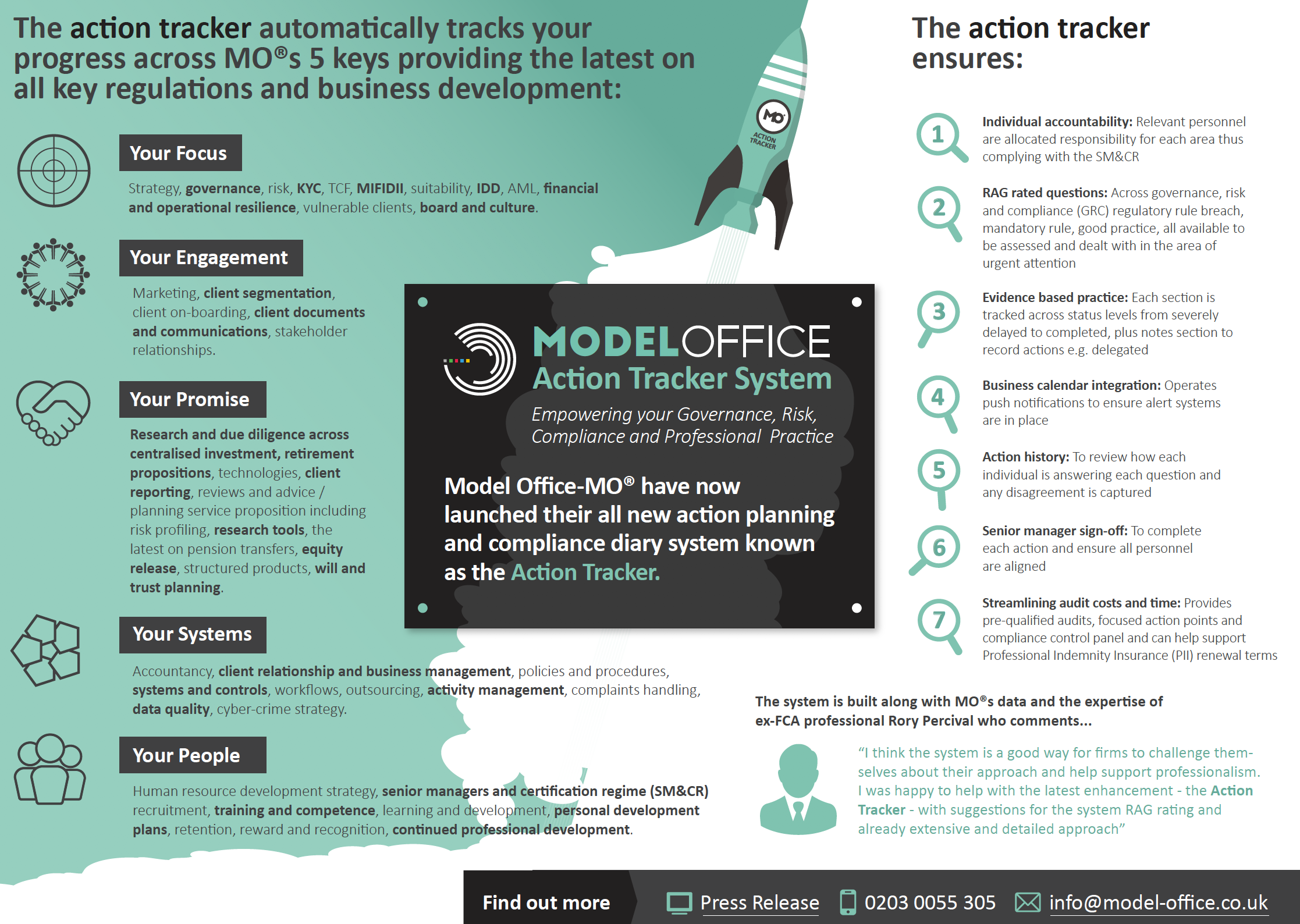Enforcing regulatory compliance can be enough of a challenge when your workforce is in the office. When they are dispersed, how can you be sure that your marketing and communications collateral adheres to FCA rules?
1. Have – and communicate – clear processes
The first step in managing compliance, whether locally or remotely, is to have clear processes that everyone understands. This means ensuring the compliance team are on the same understanding, systems and controls are managed tightly and SMF’s responsibilities are understood and aligned.
2. Make sure everyone understands the relevant rules
Training and Competence is crucial here – is everyone in your business aligned with the rules relevant to their roles? Are they up to date with their SPS and CPD requirements? With Senior Managers and Certification Regime ‘honeymoon period’ ending March ’21 and ESG, Vulnerable clients, Treating Customers Fairly, Know Your Customer, MiFID II, advice suitability to name a few are all highly relevant to showcasing professional practice, you need to evidence your team know the relevant rules and how they work in practice in their roles and responsibilities.
3. Improve collaboration – even when you’re not in the same place
Collaborating effectively on marketing projects improves efficiency, reduces unnecessary admin and duplication, and helps you stay aligned as a team and ensure consistency of compliance practice and client service.
4. Consider security
Remote workers are the weakest link when it comes to cyber-resilience. Cyber risk is one of the top business risks facing organisations. Despite this, the majority are not adequately prepared for a cyber incident. You will need to address key issues and employ Cyber strategy aligned to the FCA requirements.
Do you mandate the use of secure work emails? Are there rules about encryption of sensitive material? Are GDPR requirements met? All these issues are potentially exacerbated when teams are dispersed. Read our Cyber-crime blog here
5. Review technology and automation help?
Our Remote working and FinTech handbook covers plenty of quality technology providers across a range of business strategies that can help during these challenging times. RegTech in particular will help ensure you have the evidence that you have addressed specific issues and have a holistic approach where all the relevant stakeholders are on the same understanding. Download Model Office’s RegTech infographics here.
Your compliance Joke:
'Why do people take an instant dislike to compliance officers? To save time later....'
If you're interested in finding out more you can book a demo of our software please click below to see MO® in action.



